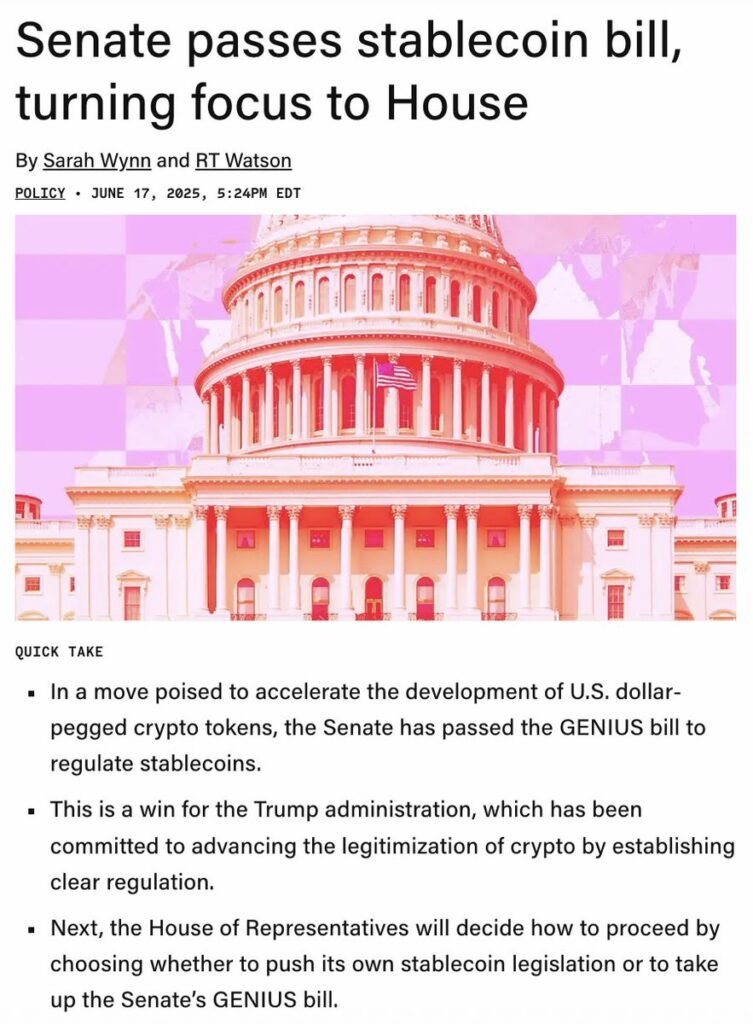
The U.S. Senate approved the Guiding and Establishing National Innovation for U.S. Stablecoins (GENIUS) Act on Tuesday in a bipartisan 68–30 vote, delivering the chamber’s first major cryptocurrency legislation and advancing a long-sought federal rulebook for dollar-linked digital tokens.
The bill establishes a licensing regime for issuers of “payment stablecoins” and mandates that the tokens be backed one-to-one by cash or short-term U.S. Treasuries held in segregated accounts. Issuers with more than $50 billion in outstanding coins would face annual audits and must comply with anti-money-laundering and sanctions screening requirements.
Supporters, including sponsors Senators Bill Hagerty, Tim Scott and Cynthia Lummis, say the measure will modernize the U.S. payments system and reinforce dollar dominance. Treasury Secretary Scott Bessent has argued that a robust stablecoin market—he projects it could grow to $3.7 trillion by 2030—would boost demand for Treasuries and reduce federal borrowing costs. Opponents such as Senator Elizabeth Warren warn the framework could echo past financial crises if oversight proves insufficient.
The legislation now moves to the House of Representatives, where internal Republican disagreements over procedure could shape its fate. If adopted without changes, the bill would head to President Donald Trump, who is expected to sign it, cementing federal oversight of stablecoins and potentially clearing the way for broader crypto-market legislation.
This is an AI-generated article powered by DeepNewz, curated by The Defiant. For more information, including article sources, visit DeepNewz.


